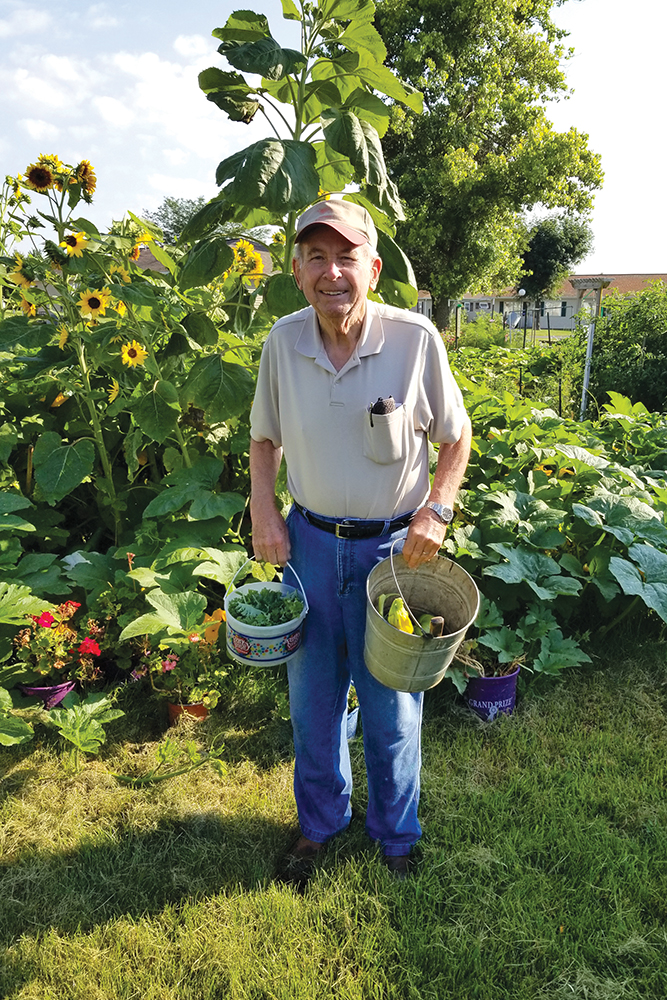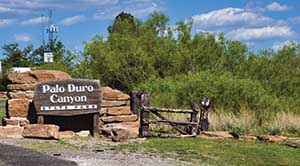By Angela Kauffman, Snyder Village
As the temperatures rise and the grass grows a deeper shade of green, nature seems to beckon us outdoors. A great way to spend time in the beauty of nature is to dig into nature itself—by gardening. Gardening can be a perfect activity for older adults and presents many benefits.
Gardening Benefits for Older Adults
Physical Health Benefits—Getting out in nature and digging in the dirt have been shown to have great benefits to your health. Studies reveal that bacteria found in garden soil can help strengthen your immune system. These friendly bacteria can aide in reducing symptoms of asthma, allergies, and psoriasis. Gardening can also lower levels of cortisol, which reduces stress and may even help lower high blood pressure. Getting out in the sunshine will also help boost your Vitamin D levels, which has numerous benefits, including supporting healthy bones.
Let’s not forget that gardening can involve much bending, squatting, and other light exercise. This movement can count toward your recommended 30 minutes of daily exercise. Benefits from daily movement and exercise abound, including lowering your risk of stroke and boosting your heart health.
Mental Health Benefits—Along with lowering stress cortisol levels, gardening has been shown to increase serotonin. This increase can produce feelings of calmness and peace, which is something we can all benefit from, isn’t it? Gardening has been shown to relieve depression and even reduce the risk of dementia. One study, which followed more than 2,500 individuals over the age of 60 for 16 years, revealed that daily gardening resulted in a 36 percent lower risk for developing dementia. The critical functions used while gardening, like sensory awareness and motor skills, can help keep dementia at bay.
“Horticulture Therapy” is becoming more commonplace in the world of therapy. The practice gained steam in the 1940s and 1950s and continues to be widely practiced today. Therapists recognize the positive effects gardening has in helping individuals develop new skills or regain skills they have lost. Horticulture Therapy is used for physical rehabilitation and to help improve memory, cognitive ability, language skills, and more.
Safe Gardening Tips
While the benefits of gardening are numerous, we can’t overlook the risks that gardening can have for older adults. Being proactive can greatly reduce the risks and enable an older adult to reap the benefits without fear.
Use potted plants or raised beds—If an older adult has mobility issues or an increased risk of falling, using raised beds or pots can help an individual move freely without straining or becoming dizzy.
Use protection from the sun—All of us, no matter our age, should use extra precaution against the sun’s powerful rays. Wear sunscreen, a large hat, or use an umbrella to protect the skin. Gardening during the hottest part of the day should also be avoided, as overheating and heatstroke can be a serious risk for older adults.
Have seating available—Somewhere in or near the garden, have a bench or chair readily available. This seat can not only serve as a resting place if an individual becomes weary or overheated, but it can also turn the garden into a relaxing and inviting outdoor space.
Create a secured garden for those with dementia—If there is concern that an older adult with dementia may wander while outside, create a garden with pots or raised beds inside a secured location. This way, they will be able to reap the therapeutic benefits of gardening while remaining protected and secure.
Gardening Culture at Snyder Village
At Snyder Village, a life plan community in Metamora, IL, residents take advantage of the numerous opportunities to garden. Those in the memory care programs enjoy gardening with potted plants and raised beds in a secured patio and courtyard. Residents who reside at Snyder Village Assisted Living enjoy tending flowers and vegetables in the large, shared courtyard. Individual decks, balconies, and patios are also dotted with colorful potted plants.
Independent living residents in the retirement community at Snyder Village have the freedom to do their own landscaping around their cottages if desired. Residents with a particular green thumb volunteer with the on-staff grounds keeper to plant and tend the numerous flowers around campus and in the courtyards. A large, shared community garden is split among residents who use their love of gardening to grow tomatoes, lettuce, squash, and other vegetables. Not only do they enjoy their time spent digging in the dirt, but the whole campus benefits from the produce they share with other residents and staff.
The fresh air, sunshine, and light activity of gardening can do wonders for an older adult’s physical and mental health. If you’re looking for an excuse to spend more time outdoors, and you want to boost your physical and mental health, then consider gardening. Now’s the perfect time to get outside and play in the dirt!
Snyder Village is a Life Plan Community located in Metamora, IL. We offer a continuum of care that ranges from independent living to assisted living, skilled nursing care, memory care, and home care. Learn more at www.snydervillage.com or by calling (309) 367-4300.
For additional informative and inspirational articles, visit 50 Plus News and Views Greater Peoria Area online today.










